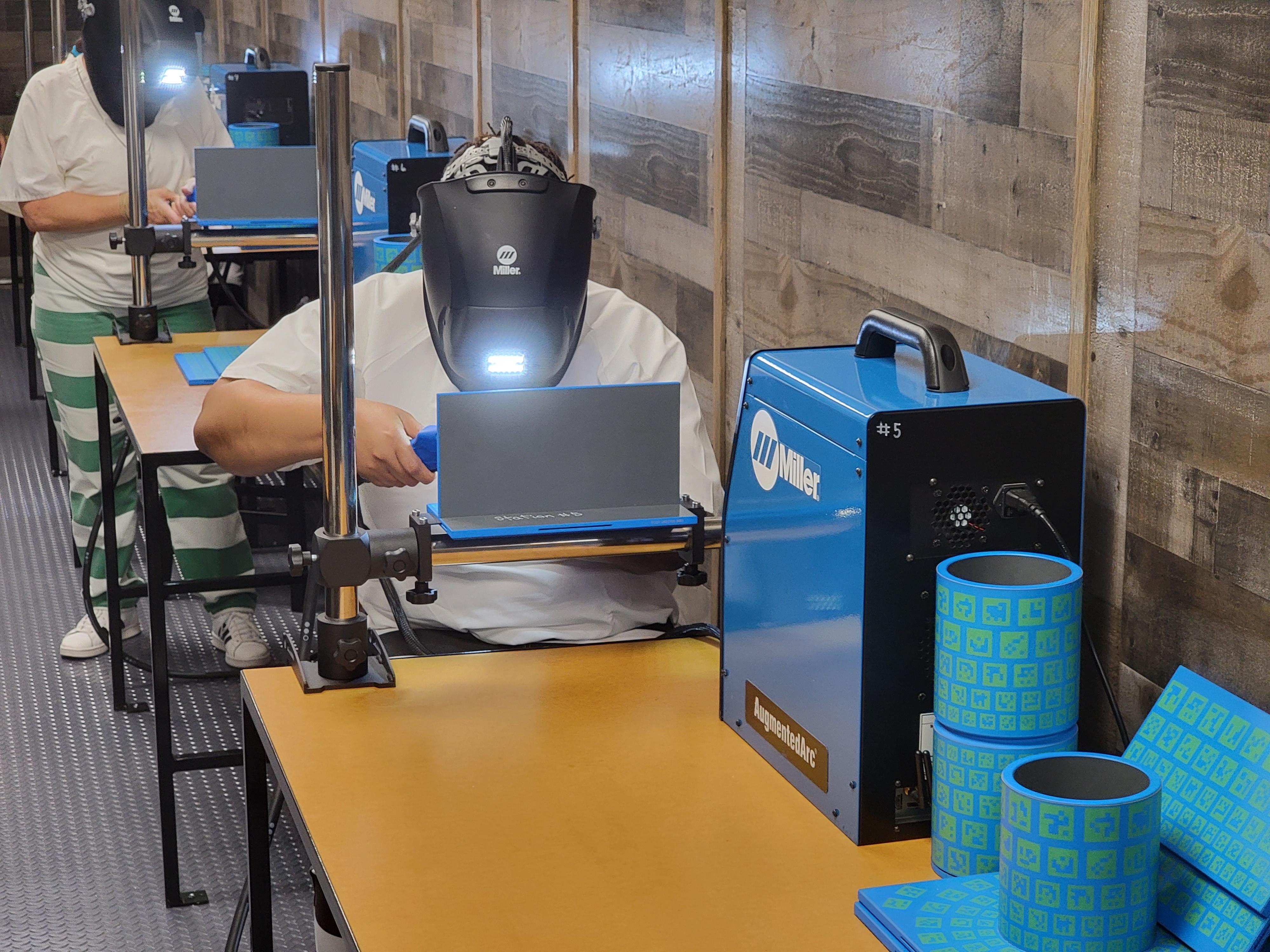The new certification program is launching at the Central Mississippi Corrections Facility that uses new augmented reality equipment to teach welding. Participants will receive both in-person instructions on welding, as well as use this new technology to practice their skills and be graded in real-time.
Mississippi has one of the highest incarceration rates in the nation, and 77 percent will return within five years of their release according to the National Institute of Justice. Burl Cain, Commissioner of the Department of Corrections, says job security can help prevent a formerly incarcerated person from returning to prison.
“You can’t re-enter broke. And this equips them with high skill jobs so that they’re very employable so therefore they get past the stigma of being ex-convicts,” says Cain. “You may not get a job sweeping the floor, but you’ll get a job being a certified welder like you see here. And that’s what this is all about. It creates skills in trade that’s making inmates employable.”
The program can help inmates become certified welders, and also connect inmates with employers to have a job waiting for them upon release. And the first class of welders will be completely female to emphasize gender equality according to officials.
Brittany Waddell of Corinth is one of the first inmates to begin the welding class.
“It’s amazing. It’s all virtual reality stuff, so it’s something totally different than we’ve ever done here before,” says Waddell. “By the time we get done with this class, we’re going to be able to be employed before we even leave prison. The less things we have to worry about when we get out is looking for a job and having to worry about our background keeping us from being able to be productive in life.”
The course will train and certify up to 32 inmates per semester, and the mobile facility can be moved between prisons. Most course material will also be taught by trained inmates.




